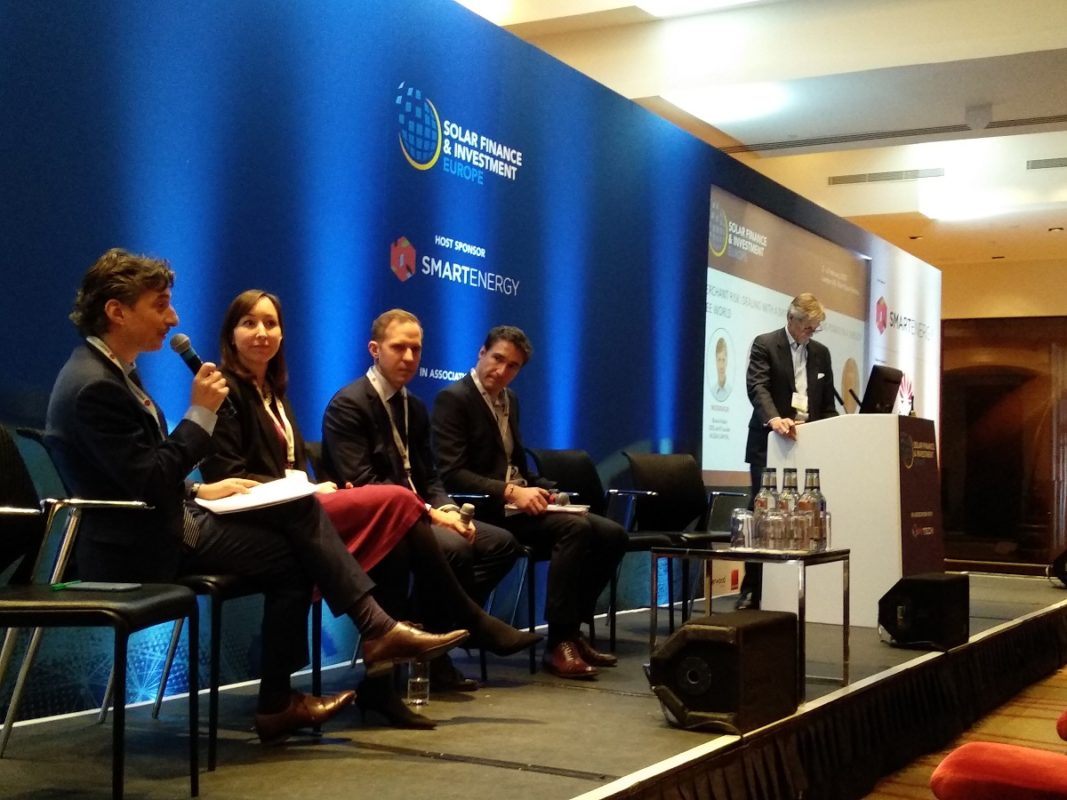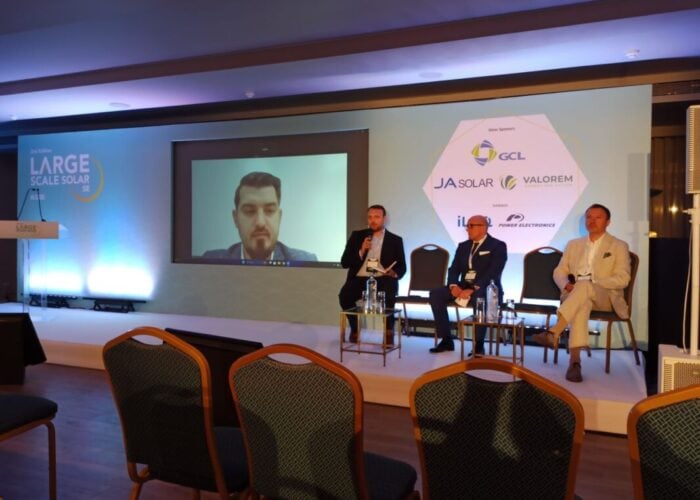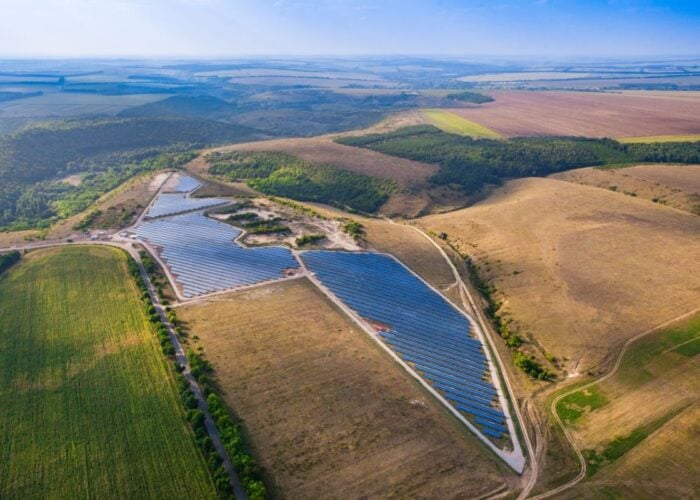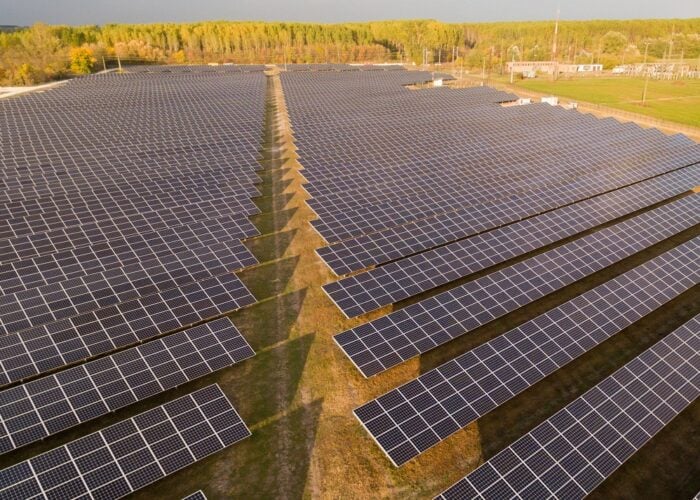
The roll-out of renewables without any subsidies or support from offtakers is gradually taking hold all across Europe despite the risks that come with the territory, top industry experts have said at Solar Media’s Solar Finance & Investment Europe conference.
Panellist remarks during the first sessions of the two-day event in London evidenced the growing appetite for merchant solar plays, which for the past few months have become more commonplace in Spain, Italy and other European markets.
Unlock unlimited access for 12 whole months of distinctive global analysis
Photovoltaics International is now included.
- Regular insight and analysis of the industry’s biggest developments
- In-depth interviews with the industry’s leading figures
- Unlimited digital access to the PV Tech Power journal catalogue
- Unlimited digital access to the Photovoltaics International journal catalogue
- Access to more than 1,000 technical papers
- Discounts on Solar Media’s portfolio of events, in-person and virtual
Luca Pedretti, COO of PPA advisory Pexapark, said he expects a rise in European merchant deals this year. Lee Moscovitch, partner at UK renewable investor Greencoat Capital, quipped he would rather “go full merchant” than rely on energy trading deals where pricing is not transparent.
Sector players mapped out the areas they are targeting for free-market moves. Dan Stilwell, head of origination at risk transfer specialist Nephila Climate, said his firm expects merchant business to come from the US, Australia, Iberia and the Nordics. “We’re not nervous about these risks,” he said.
Sam Goss of Octopus Investments noted his firm has sponsored unsubsidised plays in Italy for years and will now also look into further solar in the UK and Iberia. Discussing risks across each market, the investment director contrasted the UK’s “high operational leverage” with Spain’s “overbuild risk”, amid government plans to boost installed PV capacity from 8.8GW last year to 37GW by 2030.
Elizabeth Debevoise Baxter, a renewable energy banker at development financier the EBRD, shifted the merchant scope onto the less-explored Balkan region. “We’re seeing Nordic players combining a portfolio of large hydro projects, used for balancing purposes, with merchant solar,” she said.
Tech and finance can’t save you from merchant risks
Whatever the potential rewards, can operators minimise the risks that come from relying on direct power sales rather than subsidies? The discussion at the Solar Finance & Investment Europe event suggested some question whether innovative financial strategies can be of much use, for now.
Commenting on the risk transfer solutions offered by Nephila and others, Octopus’s Goss said: “People come forward to take risk away from us but the challenge is, in solar and wind we’re investing for 30 years. Until the day these products can exist for 25 to 30 years then it is not going to be price-efficient for the people standing in my shoes.”
Squeezing energy yield through cutting-edge technology – the centre of much solar expert talk in recent months – was not universally popular, either. Several panellists reported an unsatisfactory experience after rolling out artificial intelligence tools to track plant performance, with one describing the technology as “not massively helpful” and another saying costs remain “too high”.
Live audience questions saw panellists consider a premise: however challenging, don’t merchant risks save PV players from the regulatory risks they would face if they depended on state support? The EBRD’s Baxter appeared to underscore the principle as she pointed at recent events in Ukraine, where the state u-turned from pledging feed-in tariffs to announcing “adverse regulatory changes.”
Some speakers, it emerged at the panel discussions, believe the talk of a new merchant era can mask the fact that the approach has been a reality for a while. “I personally don’t think merchant is a new thing,” said Octopus’s Goss. “On the equity side, particularly in the UK, we’ve been exposed for a long time, in a pretty unwittingly way.”
“This isn’t something that is particularly new to equity, it just requires a new way of thinking,” Goss went on to say. “The bottom line of this is – investing in renewable energy is investing in infrastructure and merchant risk. Equity that doesn’t recognise or embrace that merchant risk probably is playing in the wrong space.”
See here for more information on the agenda and speakers of Solar Media's Solar Finance & Investment Europe conference, held in London on 5-6 February 2020.






